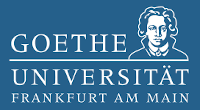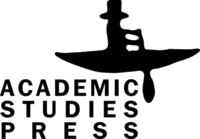Mashyak the Antichrist, the Jewish Messiah, and His Company: The Early Hebraisms of the East Slavic Literature in Eschatological Context
DOI:
https://doi.org/10.31168/2658-3356.2023.6Keywords:
Christian-Jewish relations, eschatology, Church Slavonic, Old Russian, Palaea Interpretata, apocrypha, Hebraisms, medieval manuscripts, historical phoneticsAbstract
The paper reviews the manuscript tradition of three Hebraisms from the Early East Slavic literature, as following: Mašliakh occurred in the Palaea Interpretata (that was connected to earlier Mašika / Mašiaak from the Addresses to a Jew on the Incarnation of the Son of God of the Miscellany from the 13th century, i.e., resp. Hebrew Māšîaḥ ‘the Messiah’), Malkatošva (from Hebrew Malkaṯ Šəḇāʾ ‘the Queen of Sheba’), and Šamir (resp. Hebrew šāmîr ‘a diamond’). The last two words are recorded in the stories of Solomon’s Cycle which were attached to the Palaea Interpretata while it was modified to the Full Chronographical Palaea. The Hebraism Mašliakh was undoubtedly borrowed from the Semitic form directly, i.e., without Greek mediation. The spelling Mašliakh indicates that this word was used in Slavonic as spoken form for a long time: Hebrew Mašíax > Slavonic Mašǐjaxъ > Mašjax > Mašliax. Considering the chronology of the loss of reduced vowels, the form Mašjax could appear in Old Russian in the 12th c. The same is true for the form Malkatъ Šьva, in which the behavior of the reduced vowels fully corresponds to the Old Russian historical phonetics. The article proposes the hypothesis that all these early Hebraisms could have appeared as a result of contacts between Old Russian pilgrims and Jewish bookmen in the First Kingdom of Jerusalem in the Holy Land (1099–1187), facilitated by the eschatological expectations of the Jewish communities under the rule of the Crusaders. Moreover, the direct Jewish-Christian contacts in the Slavonic Middle Ages could not have been perceived otherwise than in the context of the End Times.












